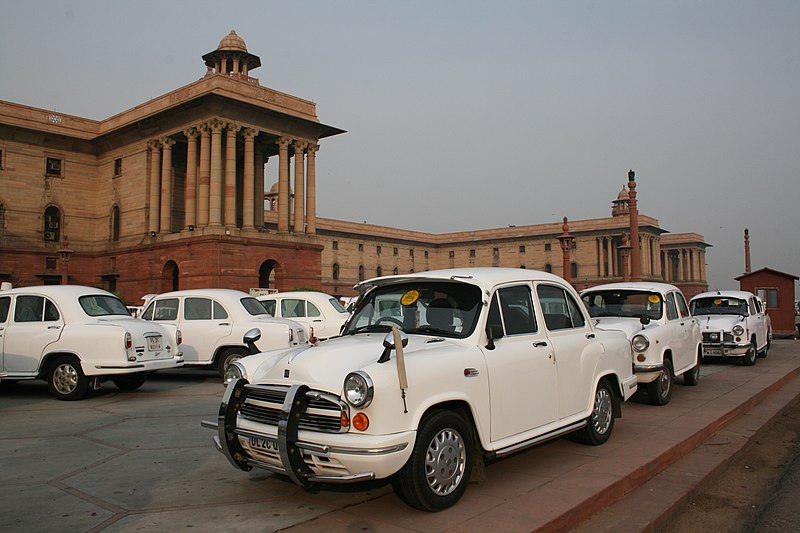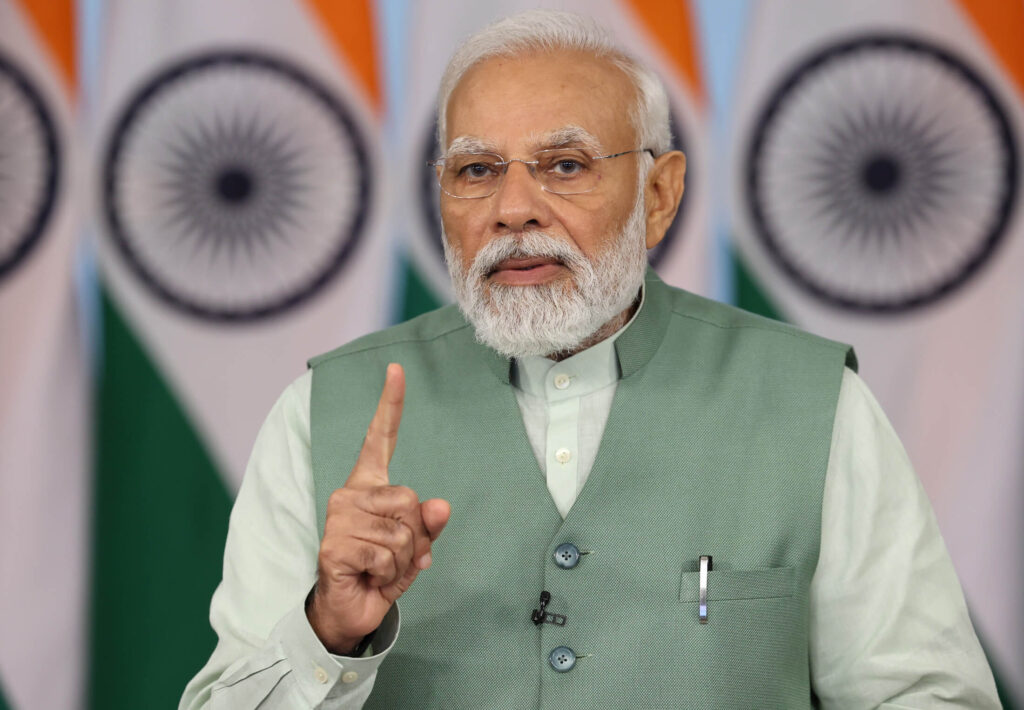
The Prime Minister’s office called, and the Principal Secretary to the PM Narendra Modi was on the line. I was posted as Secretary, School Education and Literacy, and my tenure as a Civil Servant was drawing to a close in 2018. However, the conversation we had did not relate to education.
“Anil, can you brief the Prime Minister on Health Insurance?” was his question. I could not fathom the context. Yes, I was involved in visualising, conceptualising, articulating, implementing, and evaluating Rashtriya Swasthya Bima Yojana (RSBY) arguably the largest health insurance scheme globally. This scheme had come to be recognised by the International Labour Organisation (ILO) and World Bank as one of the finest. But the scheme had fallen from grace as it was considered a scheme of the ‘previous’ government. Moreover, a Group of Secretaries, none of whom had any clue about the nuances of health insurance, had condemned the scheme that was subsequently starved for funds.
“Sir, but what have I to do with Health Insurance?” I asked, thoroughly puzzled.
“No, the Prime Minister is keen on providing health insurance (assurance as it was called) to the citizens of the country, and the Health Ministry has been trying to evolve a scheme. However, there hasn’t been a consensus”, he concluded.
The Group of Secretaries that had condemned and dumped RSBY had not suggested any alternative. They had soon discovered that it was easy to ‘destruct’ but challenging to ‘construct’. The officers in the Health Ministry were struggling to develop a scheme to PM’s liking and satisfaction even after three years of his announcement to provide health assurance to the masses.
“But sir, what is my locus standi to provide my inputs and suggestions to the PM on health insurance?” I countered.
The Principal Secretary had a ready answer, “There is a meeting scheduled for the review of certain proposals of the Health Ministry. We will line up a review of the Education Ministry as well. Hence, you will be present when the discussion on health insurance takes place. If the PM asks you about your views on the health insurance scheme, you can give your inputs.”

Some of the officers of the Health Ministry and NITI Aayog (National Institution for Transforming India) had taken inputs from me in the recent past while formulating the ‘new’ health insurance scheme that was primarily structured on the lines of RSBY. A very competent team in NITI Aayog, headed by one of its members, V. K. Paul, and comprising officers like Alok Kumar, who was well-versed in the nuances of health insurance, was working on it. The earlier attempts had failed, but this team had developed a new proposal to convince the PM about the scheme. I saw this as an opportunity to revive RSBY that had earned encomiums from World Bank and other international organisations but was discarded unceremoniously thereafter. The scheme had benefited hundreds of thousands of poor people. There were indeed some issues with the scheme, but then no scheme was perfect. So, I agreed to attend.
The meeting started late in the afternoon at 7, Race Course Road, the residence of the PM. Apart from a couple of Ministers, there were a few officers as well. The Health Secretary made a presentation on the proposed health insurance scheme. Everyone was apprehensive about the PM’s response. I had been informed that he was unhappy on a few occasions when the scheme was presented to him. He disapproved of the Insurance model as he felt that the insurance companies would not take care of the interest of the poor and corner all the profits.
On this occasion, too, he did not appear to be very impressed. However, he turned towards me and remarked, “Anil, you have handled Health Insurance in the past; what is your comment?” I spoke for around 15 minutes, outlining the need for health insurance and the strengths of the proposed scheme. The PM listened very patiently. He appeared quite convinced with the rationale provided by me. He did ask a couple of questions (his yearning for details was amazing). Then a decision was taken in principle to go ahead with the scheme. He somehow came around to accept the insurance model of the scheme.
While coming out of the meeting a Joint Secretary at the PMO who was present at the meeting asked me, “Sir, how were you so blunt with the PM? Despite being aware that the PM didn’t like the insurance model, you still went ahead and spoke in defence of such a model”. My answer was simple, “I don’t expect anything from the PM, neither now nor after retirement. Hence, I conveyed to him what I thought was in the interest of the country. It didn’t really matter to me whether he liked it or not.”
This was my last meeting with Narendra Modi.
xxxxxxxxx

During both the first and the last meeting with PM Narendra Modi, I had a view that was at variance with his. On both the occasions he heard me out, he concurred with me on each of these occasions. Yes, Modi was prepared to listen, ready to accept a difference of opinion. And this is the reason why I blame those around him for not presenting their views freely and frankly. There were several occasions when I found that officers with differing perspectives kept quiet or went with the flow. Yes, I did see him get angry on occasions. On one occasion, he gave a dressing down to Chairman, Railway Board, in the presence of other Secretaries. However, it was not on account of a difference of opinion. The poor performance of Railways had irked him.
Contrary to the general impression, Narendra Modi spoke very little during the meeting. His grasp of the issues was phenomenal, and, more often than not, he came up with extremely practical solutions. His long experience as Chief Minister almost always came in handy.
Also Read:
Narendra Modi – the man of ideas
Narendra Modi – the driving force
I enjoyed a great professional relationship with the PM. However, I was never close to him as was reported first in the Hindustan Times and then in India Today. He always valued my opinion, though we occasionally had disagreements. He did start in right earnest as the Prime Minister, and the economy too seemed to be doing pretty well. Then where and when did it go all wrong? In my understanding, it all changed on the fateful night of November 8, 2016. Demonetisation was announced. Currency notes of Rs 1000 and Rs 500 were demonetised. My first reaction was elation. Working in the state of Uttar Pradesh, I had seen how a corrupt Chief Minister had accumulated cash. It was all so shocking. I thought that such politicians would lose their ill-gotten wealth. However, it was not to be. The mismanagement of the aftermath of demonetisation resulted in all this wealth returning to such people. The real sufferer was the common man. The economy tanked after that, never to recover. Ironically, the National Democratic Alliance went on to win the crucial state election in UP. In a way, it provided political legitimacy to a disastrous economic move. Only posterity will finally determine the damage caused by demonetisation, perhaps a good idea but very poorly executed.
The environment had changed. The last “tea” session of the Secretaries with the PM that I attended epitomised the mood. As per the drill, the Cabinet Secretary made the opening remarks. This was followed by an open session wherein the Secretaries gave their suggestions. Finally, the PM made the concluding speech. As mentioned earlier, this was a unique way of ascertaining opinions and suggestions. It had worked very well so far. However, on this day, after the Cabinet Secretary spoke, there were no comments/observations from Secretaries for a couple of minutes after the Cabinet Secretary had concluded. There was an unusual silence, reflecting a change in the environment. The PM had to stand up himself and ask the Secretaries to speak. After that, some Secretaries spoke, but the cat was out of the bag. The “free” communication channel appeared to have been frozen.
The government was still doing exceptionally well on many fronts like national highways, rural housing, rural electrification, cooking gas and digital payments. This was paying political dividends. The government was appropriately taking credit for all that was happening. Unfortunately, it also took credit for what it had not done. I remember the Independence Day speech where, amongst the many not-so-correct claims by the PM, was the claim related to the setting up of Project Monitoring Group (PMG) by the NDA government. As I had set up the PMG during the previous government’s tenure, I wondered whether there was a need to make such and many other ‘incorrect’ claims when the government could legitimately claim to have done so very well on many fronts.
(Concluded)

